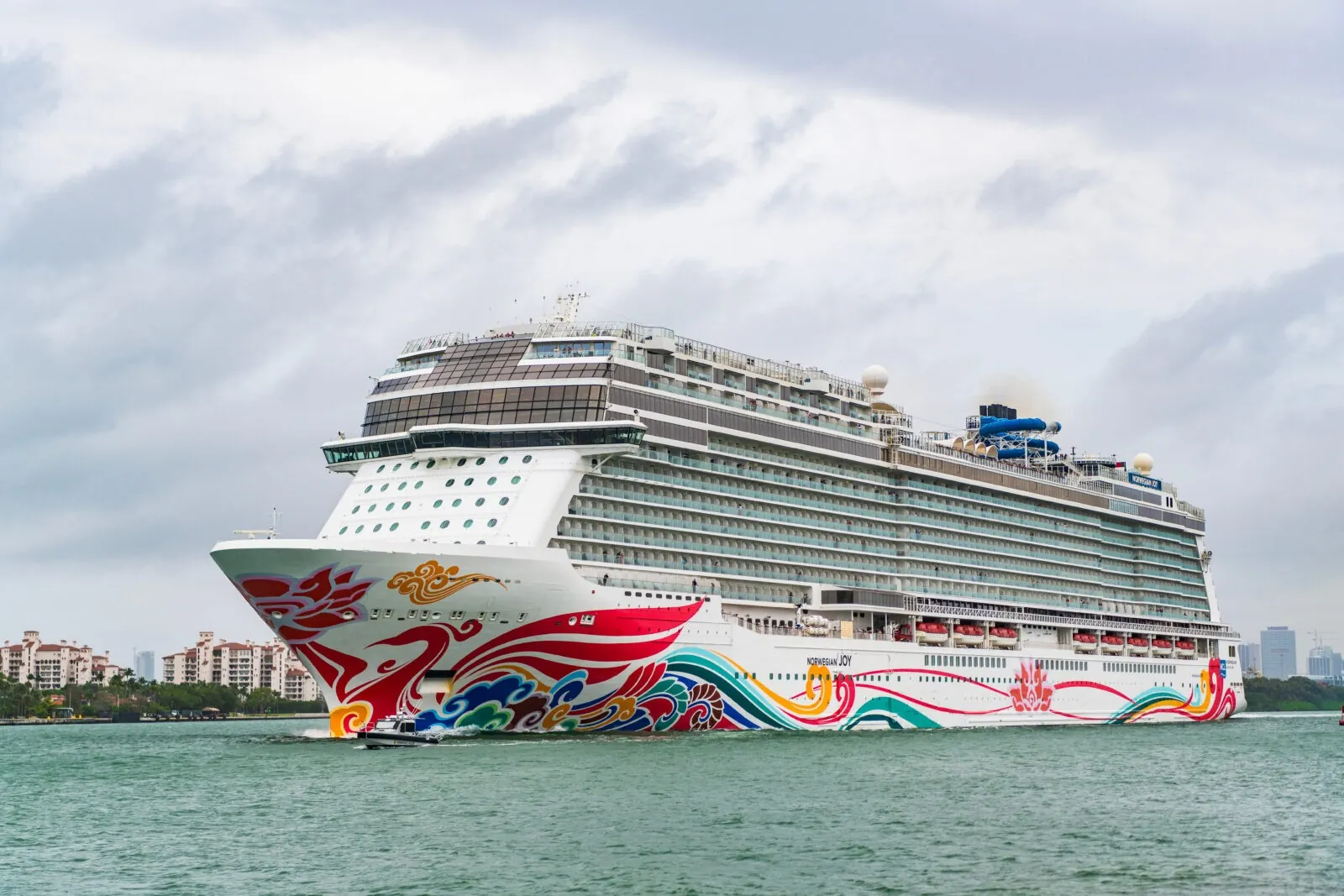Cruise vacations are meant to be relaxing, enjoyable, and memorable. However, accidents can happen, leading to injuries that can disrupt the experience. When these injuries result from negligence by the cruise line, passengers have the right to seek legal action. Filing a cruise line negligence lawsuit can be a complex process due to the involvement of maritime law and the cruise line’s legal protections. This comprehensive guide explores your legal rights, the steps to take after an accident, and how to secure the compensation you deserve.
What is a Cruise Line Negligence Lawsuit?
A cruise line negligence lawsuit is a legal action taken against a cruise line for injuries sustained due to their failure to provide a safe environment. Cruise lines are required to maintain a high duty of care to their passengers, ensuring safety and protection throughout the voyage. When they fail to do so, and negligence leads to an accident, injured passengers have the right to sue the cruise line for negligence and seek compensation for their losses.
Why Cruise Ship Injuries Occur
Cruise ship injuries can result from a variety of situations, including:
Slippery Decks
Wet and slippery decks without proper warning signs are a common cause of accidents on cruise ships. These can occur due to poolside water, spilled drinks, or poor maintenance practices.
Defective Equipment
Cruise ships often have recreational facilities, such as water slides, zip lines, and fitness centers. If equipment is not properly maintained or supervised, it can lead to severe injuries.
Foodborne Illnesses
Outbreaks of food poisoning or norovirus are not uncommon on cruise ships, especially when food handling procedures are not adequately followed.
Excursion Accidents
Cruise lines often partner with third-party vendors for onshore excursions. If these activities are not adequately vetted, passengers may face accidents due to poorly maintained equipment or lack of safety protocols.
Assaults and Security Failures
Passengers may be vulnerable to assaults or thefts if the cruise line does not provide adequate security measures, such as surveillance cameras and security personnel.
Legal Implications of Cruise Line Negligence
Cruise lines are subject to strict safety regulations under maritime law. They are required to:
- Ensure Passenger Safety: This includes maintaining the ship’s facilities, providing adequate security, and ensuring food and medical safety standards are met.
- Warn Passengers of Potential Hazards: If a known danger exists, such as slippery decks, the cruise line must provide visible warnings.
- Provide Adequate Medical Care: Cruise lines must ensure that their medical staff is competent and that medical facilities are well-equipped.
When they fail to meet these obligations, they can be held liable for personal injury on a cruise ship, giving injured passengers the right to file a cruise ship injury claim.
Examples of Cruise Line Negligence
Slips, Trips, and Falls
Slips, trips, and falls are among the most common types of cruise ship accidents. These incidents can occur due to slippery pool decks, uneven surfaces, inadequate lighting, or loose railings. If proper safety measures are not in place, the cruise line may be found negligent. Injuries from falls can range from minor bruises to severe fractures and head injuries.
Food Poisoning and Contamination
Food poisoning and contamination are significant risks on cruise ships. Improper food handling can lead to foodborne illnesses, and contaminated water sources can cause gastrointestinal issues. Outbreaks of norovirus due to poor sanitation are not uncommon on cruise ships. If a cruise line fails to follow food safety standards, they can be held liable for passengers’ illnesses.
Security Incidents
Security incidents can occur if the cruise line fails to provide adequate security staff or surveillance cameras. This negligence can lead to assaults, thefts, or other criminal activity on board. Passengers have the right to expect a safe and secure environment. If a security failure results in harm, the cruise line may be legally responsible.
Medical Negligence
Medical negligence is another area where cruise lines may be found liable. Incompetent medical staff, delayed medical attention, or insufficient medical supplies can result in severe complications for injured passengers. Maritime law requires cruise lines to provide adequate medical care onboard, and failure to do so can lead to a medical malpractice lawsuit.
Excursion Accidents
Excursion accidents can also lead to cruise line negligence lawsuits. If the cruise line arranges onshore excursions through third-party vendors without ensuring proper safety measures, they may be held responsible for injuries that occur during these activities. Even if a third party operates the excursion, the cruise line can be liable if they failed to warn passengers of potential risks.
These examples illustrate situations where the cruise line’s failure to exercise reasonable care can lead to serious injuries, making them liable under cruise line negligence lawsuit provisions.
When Can You Sue a Cruise Line for Negligence?
Not every injury on a cruise ship justifies a lawsuit. To successfully sue a cruise line for negligence, you must prove the following elements:
- Duty of Care
Cruise lines owe passengers a duty of care to provide a safe and secure environment throughout the voyage. This duty includes proper maintenance of ship facilities, including walkways, staircases, pools, and recreational areas. They are also responsible for ensuring food safety standards to prevent foodborne illnesses and for providing adequate medical care and security measures onboard.
- Breach of Duty
A breach of duty occurs when the cruise line fails to uphold its responsibility to provide a safe environment. This can happen when they neglect to repair hazardous areas, such as broken handrails or uneven surfaces. It also includes failing to warn passengers of known risks, like wet floors, or not providing adequate security measures, which can lead to criminal activity on board. Additionally, inadequate training of staff or medical personnel that results in negligence is considered a breach of duty.
- Causation
To prove negligence, you must demonstrate that the breach of duty directly caused your injury. This involves establishing a clear link between the cruise line’s negligence and the accident. You must also provide evidence that the injury would not have occurred if the cruise line had fulfilled its duty of care. This requires collecting documentation such as incident reports, photographs, witness statements, and medical records that clearly show the cause-and-effect relationship between the cruise line’s actions (or inactions) and your injury.
- Damages
You must show that you suffered actual damages due to the injury, which may include:
- Medical Expenses: Hospital bills, surgery costs, physical therapy, and ongoing medical care.
- Lost Wages: Compensation for lost income due to the inability to work.
- Pain and Suffering: Physical pain, emotional distress, and reduced quality of life.
- Loss of Enjoyment: Impact on lifestyle, such as the inability to participate in hobbies or daily activities.
Examples of Successful Lawsuits
Several high-profile cases highlight when passengers have successfully sued cruise lines for negligence:
- Slip and Fall Accidents: A passenger received compensation for a broken hip due to a slippery pool deck with no warning signs.
- Food Poisoning Outbreaks: Passengers sued a cruise line for norovirus contamination due to unsanitary kitchen practices.
- Security Lapses: Compensation was awarded to a passenger assaulted on board due to inadequate security measures.
- Medical Negligence: A family won a lawsuit against a cruise line for misdiagnosis by the ship’s medical staff, resulting in severe complications.
How to Prove Negligence
To prove negligence, gather the following evidence:
- Incident Report: File an accident report with the cruise line immediately after the incident.
- Photographic Evidence: Take photos of the accident scene, including hazardous conditions that contributed to the injury.
- Medical Records: Obtain documentation of medical treatment received onboard and after disembarking.
- Witness Statements: Collect contact information of witnesses who can support your account of the accident.
- Expert Testimony: Maritime law experts or safety inspectors may be required to testify about the cruise line’s negligence.
Why You Need Legal Representation
Hiring an experienced cruise ship accident attorney is crucial because:
- Maritime Law Expertise: Maritime law is complex and differs from land-based personal injury laws.
- Negotiation Skills: Cruise lines have powerful legal teams to minimize payouts. An attorney can negotiate on your behalf.
- Maximizing Compensation: A lawyer can help you calculate and claim all eligible damages, ensuring fair compensation.
Frequently Asked Questions (FAQ)
Can I sue a cruise line for medical negligence?
Yes, you can sue a cruise line for medical negligence if the onboard medical staff failed to provide the appropriate standard of care, resulting in harm or injury. Maritime law requires cruise lines to provide competent medical personnel and adequate medical facilities. If you believe that misdiagnosis, delayed treatment, or improper medical procedures contributed to your injury or worsened your condition, you may have grounds for a medical malpractice lawsuit against the cruise line.
What should I do if I am injured on a cruise ship?
If you are injured on a cruise ship, it is important to report the incident to the ship’s staff immediately and request an official accident report. Seek medical attention at the ship’s medical facility and ensure that all medical treatments are documented. Take photographs of the accident scene, gather contact information from witnesses, and keep records of all medical expenses related to the injury. After disembarking, consult a cruise ship accident attorney to understand your legal rights and the next steps for filing a claim.
Is the cruise line always responsible for passenger injuries?
The cruise line is not always responsible for passenger injuries. To hold a cruise line liable, you must prove that the injury was a result of the cruise line’s negligence or failure to provide a safe environment. If the injury occurred due to the passenger’s own actions or was caused by a third party, such as during an independent excursion, the cruise line may not be held responsible. Each case is unique, so it is advisable to consult with an attorney to evaluate the specifics of your situation.
What compensation can I receive for a cruise ship injury?
Compensation for a cruise ship injury may include medical expenses, lost wages, pain and suffering, emotional distress, and loss of enjoyment of life. In cases of severe injuries, compensation may also cover long-term medical care, rehabilitation costs, and loss of earning capacity. The amount of compensation depends on the severity of the injury, the impact on your life, and the evidence supporting your claim.
How long do I have to file a claim against a cruise line?
The time limit to file a claim against a cruise line is typically shorter than for other personal injury cases. Most cruise lines require injury claims to be filed within six months to one year from the date of the accident, as specified in the ticket contract. It is crucial to act quickly and consult with a maritime attorney to ensure that you meet the necessary deadlines and preserve your right to seek compensation.
Contact The Cruise Injury Law Firm Today
If you’ve been injured on a cruise ship due to negligence, contact The Cruise Injury Law Firm today to schedule your free consultation. We can help you understand your legal rights and secure the compensation you deserve.



